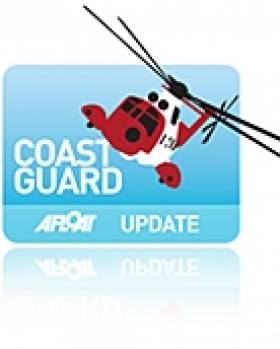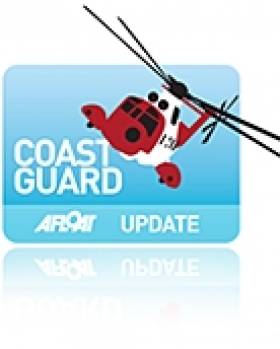Displaying items by tag: DUP
#cruiseliners - Independent.ie reports in a reduction in the number of cruise ships entering Dublin Port will cause considerable damage to the tourism sector on the island of Ireland, the leader of the DUP has warned.
It is understood that Arlene Foster has been in contact with transport minister Shane Ross to outline the impact that reduced cruises will have on both sides of the border. Foster fears that companies may now go elsewhere.
It follows news that the Dublin Port Company was considering curtailing its cruise business in order to make way for more freight after Brexit. Business groups have heavily lobbied against the port's decision insisting it could heavily damage businesses in the city.
More on the story here.
Loss of Bangor 'Would Jeopardise Air Rescues'
Ireland's free provision of air-sea rescue services to Northern Ireland could be in jeopardy if the Bangor coastguard centre is closed, a DUP MP has warned.
In today's Belfast Telegraph, Strangford's Jim Shannon said that loss of the cross-border relationship would "most certainly end in loss of life".
Shannon reiterated that the Bangor centre is not only responsible for Northern Ireland's coastline but also its inland waterways and loughs, and mountain areas such as the Mournes.
Merseyside MP Bill Esterson is also quoted as warning that his local coastguard staff "don't feel equipped to look after Northern Ireland" if services are consolidated in Liverpool.
Shipping Minister Mike Penning gave his assurance that coastguard staff would not be victimised if they submit their views to the open consultation, which has been extended to 5 May.
Minister's Praise of Bangor Coastguard 'Rings Hollow'
UK Shipping Minister Mike Penning's praise of staff at Northern Ireland's only coastguard station has been described as 'hollow' by a DUP MLA.
Penning had described his meeting with staff at the Bangor coastguard centre, which is threatened with closure under new streamlining plans, as "a breath of fresh air".
But the DUP's Peter Weir told the Community Telegraph that his praise "rings a little hollow as it is the minister who created the problem in the first place".
He added: "“We cannot be allowed to be the only part of the UK to be without this facility, and the Secretary of State should be making it clear to his colleagues that he feels so strongly about this that he considers this a resigning matter."
North Down Mayor John Montgomery (DUP) also complained that neither he nor his councillors were informed of the minister's flying visit, which had been rescheduled after a previous cancellation.
"Is the Shipping Minister running scared of North Down councillors?" he asked.

























































